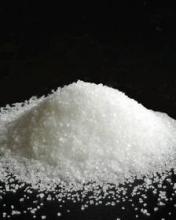High urinary sodium excretion, a proxy for high sodium intake, was associated with an increased risk of cardiovascular mortality, myocardial infarction, stroke, and hospitalization for heart failure in a study in the Nov. 23/30 JAMA.
However, low urinary sodium excretion also was associated with increased risk of cardiovascular mortality and hospitalization for heart failure.
"Our findings emphasize the burden of CV disease associated with excess sodium intake and the importance of population-based programs to reduce sodium intake in populations consuming high-sodium diets," Dr. Martin J. O’Donnell of the Population Health Research Institute, McMaster University, Hamilton, Ont., and his associates.
Importantly, the association between sodium intake and adverse CV outcomes did not become significant until intake exceeded 6.5 g/day. This threshold is higher than that recommended by the World Health Organization and by many national guidelines. This highlights "the urgent need to establish a safe range for sodium intake," they noted.
"We found a J-shaped association between estimated sodium excretion and CV events," the researchers noted.
Compared with the "moderate" sodium excretion of 4-5.99 g/day, both higher (more than 7 g/day) and lower (less than 3 g/day) sodium excretion were linked to adverse CV events.
They examined the relationship between sodium intake and CV events using data from two large clinical trials in which patients at high risk for CV events provided urinary samples and were followed for a median of 56 months. Data from the two trials were combined because both recruited subjects from the same areas during the same time period (2001-2004) using the same eligibility criteria and the same methods of obtaining baseline clinical data and monitoring outcomes.
A total of 28,880 study subjects followed at 733 medical centers in 40 countries were included. The subjects were aged 55 and older and either had established CV disease or high-risk diabetes.
Sodium and potassium concentrations were determined from a single morning fasting urine sample from each subject, and this was used to estimate 24-hour sodium and potassium excretion. Overall, the mean estimated 24-hour sodium excretion, a proxy for sodium intake, was 4.77 g, and potassium excretion, a proxy for potassium intake, was 2.19 g.
The composite outcome of CV death, MI, stroke, and hospitalization for heart failure occurred in 4,729 study subjects (16%) during follow-up through 2008. Overall mortality was 12%, the rate of MI was 5%, that of stroke and heart failure hospitalization were each about 4%.
Compared with the moderate excretion of 4-5.99 g/day, higher excretion (more than 7 g/day) was associated with a hazard ratio of 1.15-1.49 for the composite end point. And those with lower excretion (less than 3 g/day), had a hazard ratio of 1.16-1.21 for the composite end point.
In addition, high sodium excretion was significantly associated with each of the individual components of this composite outcome, Dr. O’Donnell and his colleagues said (JAMA 2011;306:2229-38).
"We found a J-shaped association between estimated sodium excretion and CV events."
Lower sodium excretion also was associated with increased risk of heart failure hospitalization.
These results remained robust in several sensitivity and subgroup analyses.
No association was found between potassium excretion and any of the CV outcomes, except that higher potassium excretion was related to a reduced risk of stroke.
"Clearly, large randomized controlled trials evaluating the effect of reduced sodium intake ... on CV outcomes in those with moderate sodium intake are needed urgently. Pending the results of such trials, a more cautious approach to policy on sodium intake may be appropriate, one that targets sodium reduction in populations consuming high sodium levels and reflects the uncertainty in those with moderate sodium diets, which includes the majority of the population."
This study was limited in that it involved patients who volunteered to participate in clinical trials, who may have different lifestyles and behaviors than those who declined to participate. Also, urinary samples were taken at a single time point, which may not accurately reflect subjects’ typical sodium and potassium excretion, Dr. O’Donnell and his associates said.
This study was supported by Boehringer Ingelheim, a manufacturer of angiotensin II receptor blockers. Dr. O’Donnell and several associates reported ties to Boehringer Ingelheim, and his associates reported ties to numerous other industry sources.


